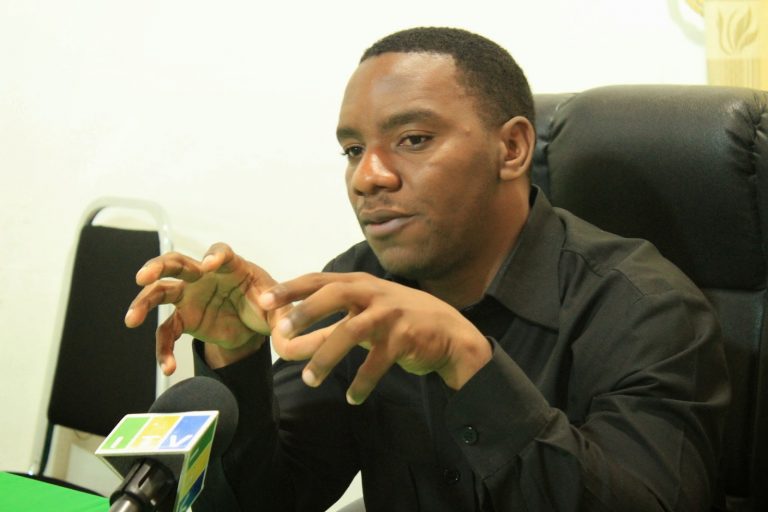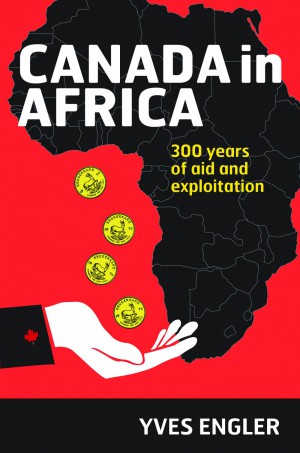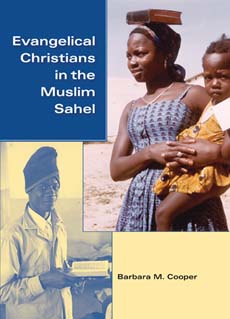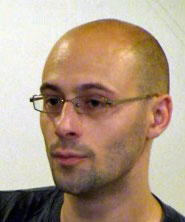How Canadians promoted homophobia in Tanzania
Colin Stewart is a 45-year journalism veteran living in Southern…
Canadians should express their solidarity with Tanzanians facing politically inspired homophobia. But the country must also be suspicious of journalism that ignores Canadian complicity in the promotion of anti-gay ideology, author Yves Engler says.

By Yves Engler
Earlier this month the Globe and Mail and CBC both reported on a Christian politician in Dar es Salaam who announced a scheme to track down and arrest gays. Titled “Tanzania’s homophobic crackdown casts a shadow on Canadian aid,” the Globe story insinuated that Ottawa should sever assistance to the country in protest while the CBC noted, “official anti-gay prejudice in Tanzania is causing Canadian officials to reassess this country’s relationship with one of Canada’s biggest aid recipients.”
While raising the subject of “Canadian aid,” the Globe and CBC both ignored how this country’s “assistance” to the region has, in fact, fostered the social conservatism that the stories bemoan. For example, while the Stephen Harper Conservative government was in power international aid funding for religious NGOs increased substantially.
In an MA thesis titled “Canadian Foreign Aid and the Christian Right: Stephen Harper, Abortion, and the Global Culture Wars in Sub-Saharan Africa, 2006-2015,” Erin Jex details Ottawa’s support for socially conservative forces on the continent.

In a high-profile example Crossroads Christian Communications, an Ontario group that listed “homosexuality” with pedophilia and bestiality as a “sin” and “perversion”, was granted more than half a million dollars for a project in Tanzania’s neighbour Uganda.
But Canada’s contribution to social conservatism in Tanzania goes back over a century. During the 100th anniversary of Tanzania’s St. Philip Theological College in 2014, Ontario Anglican Reverend Gary Badcock claimed homosexuality was a “first world” problem and that homosexuals would steal their children. A Western University professor, Badcock delivered the keynote speech because St. Philip Theological College was founded by a graduate of Huron College (now part of Western) in London, Ontario. Thomas Buchanan Reginald Westgate was a Canadian missionary who joined the Church Missionary Society in German East Africa (Tanzania) in 1902. With the support of the Ontario branch of the Church Mission Society, Westgate remained in the German colony for over a decade.

As I detail in Canada and Africa: 300 years of Aid and Exploitation, Westgate worked with a German colonial administration that killed hundreds of thousands between 1905 and 1907. The Watford, Ontario, born missionary translated parts of the Old Testament into Cigogo, the language spoken by the Gogo nation in central Tanzania. He promoted a Christian ideology antagonistic to homosexuality in what would become a British colony. (Three-dozen former British colonies have some version of the United Kingdom’s 1533 Buggery Act, which makes homosexuality illegal.)
Another Ontario native by the name of Marion Wittich (later Marion Keller) set off with her husband to proselytize in Tanzania in 1913. Her husband died in Tanzania and several years later she remarried a man by the name of Otto Keller, a German-born US émigré, who the Pentecostal Assemblies of Canada (PAOC) sponsored to set up a mission station in Kenya, which borders Tanzania. In 1914, Otto Keller claimed that
“[In Africa] we see the power of the devil in an astonishing form, almost beyond belief. The noise of drunken men and women, fulfilling the lusts of the flesh come to our ears. All seemingly bound and determined to fulfill the cup of their iniquity.”
By the time Marion Keller died in 1942, the socially conservative PAOC had over 200 branch churches in Kenya.

PAOC missionaries served in a number of colonies and set up a publishing house in 1928 that distributed Pentecostal literature in numerous African languages. PAOC remains active across the continent and promotes anti-gay views. A registered charity, it has also received substantial sums
The first Canadian missionary arrived on the continent in 1860 and by the end of the colonial period as many as 2,500 Canadians were proselytizing across Africa. The largest interdenominational Protestant mission on the continent was founded in 1893 by Torontonians Walter Gowans and Rowland Victor Bingham. The Sudan Interior Mission, which initially focused on Nigeria but operated across Africa, was boldly fundamentalist.

In a book about the organization titled Evangelical Christians in the Muslim Sahel, Barbara M. Cooper notes that to be a SIM missionary one had to accept that
“the Bible is the ‘inerrant’ word of God (a rejection of historically grounded Biblical criticism); God consists of three persons (father, son, and Holy Spirit); all humans suffer from original sin and must be reborn; humans will go to heaven or hell in the afterlife as a consequence of their spiritual condition (their rebirth or failure to be ‘born again’); Jesus was born of the Virgin Mary, he atoned for human sin with his bodily resurrection, and his second coming is imminent; Satan exists literally (not simply figuratively) and acts in the world; the Christian church is the whole body of those who have been reborn (implicitly excluding Christians who are not ‘born again’); and Christ’s great commission was to order his followers to share these ‘truths’ to every people (therefore to be a Christian is to evangelize).”
A registered Canadian charity, SIM remains active across the continent.
In addition to its ability to offer tax credits for donations, SIM has received sig
To support Tanzanians facing politically inspired homophobia, Canadians should press Ottawa to re-evaluate its relationship — both charitable status and aid funding —to anti-gay groups. And, to set the record straight, perhaps the Globe and Mail could publish a follow-up piece headlined “Tanzania’s homophobic crackdown casts a shadow on Canadian missionaries in Africa.”

Controversial author Yves Engler (yvesengler.com) has ten published books. He has been dubbed “Canada’s version of Noam Chomsky” (Georgia Straight), “one of the most important voices on the Canadian Left” (Briarpatch), “in the mould of I. F. Stone” (Globe and Mail), “part of that rare but growing group of social critics unafraid to confront Canada’s self-satisfied myths” (Quill & Quire), “ever-insightful” (Rabble), “Chomsky-styled iconoclast” (Counterpunch) and a “Leftist gadfly” (Ottawa Citizen).
Related articles about Canada and Tanzania:
- Canadian did ‘untold damage to LGBT Tanzanians’ (
- Canadian boost for Tanzania’s homophobia (1) and November 2014, 76crimes.com)
- Canadian boost for Tanzania’s homophobia (2) (November 2018 and November 2014, 76crimes.com)
Related articles about Tanzania:
- S. Africa needs to oppose Tanzania’s anti-gay crackdown (
- My nasty encounter with Tanzanian repression by Angela Quintal (November 2018, Daily Maverick)
- U.N. to Tanzania: Your duty is to protect LGBT people (November 2018, 76crimes.com)
- Tanzania plans anti-gay police state, not without opposition
(November 2018, 76crimes.com) - Tanzania hunts homosexuals, threatens ’round-up’ (October 2018, 76crimes.com)
- Donors take aim at Tanzania’s ban on LGBTI health care (January 2018, 76crimes.com)
- Tanzania deports 3 anti-AIDS lawyers for ‘promoting homosexuality’ (October 2017, 76crimes.com)
- Protests surge as Tanzania jails anti-HIV lawyers; no charges (October 2017, 76crimes.com)
- Tanzania cries ‘homosexuality’ to block health-care lawsuit (October 2017, 76crimes.com)
- In Tanzania, 13 people attending a meeting are arrested for allegedly promoting homosexuality; operations of a Global Fund SR are suspended (October 2017, Aidspan)
- Tanzanian AIDS event disrupted by arrest of 20 ‘gay’ suspects (September 2017, 76crimes.com)
- Tanzania threatens to arrest all gay rights activists (June 2017, 76crimes.com)
- LGBT sex worker on Tanzania crackdown: I’m afraid (May 2017, 76crimes.com)
- Inside Tanzania’s AIDS-enhancing anti-LGBT crackdown (April 2017, 76crimes.com)
- Global Fund-supported programs suspended amid Tanzanian government crackdown on LGBT community (March 2017, Aidspan)
- Tanzania ramps up anti-gay panic, risks HIV expansion (February 2017, 76crimes.com)
- Homophobia Explodes In Tanzania, Health Minister Threatens ‘Gay List’ (February 2017, The Advocate)
- Tanzania’s anti-gay crackdown now targets AIDS programs (November 2016, 76crimes.com)
- Seeking to limit gay sex, Tanzania bans lubricants (July 2016, 76crimes.com)




